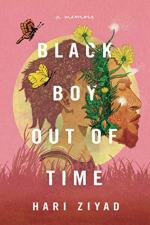
|
| Name: _________________________ | Period: ___________________ |
This test consists of 15 multiple choice questions and 5 short answer questions.
Multiple Choice Questions
1. How does Hari feel about being called bro?
(a) He appreciates it.
(b) He is indifferent to it.
(c) He dislikes it.
(d) He finds it amusing.
2. In Canto II: Queer, "Chapter 12: A Prayer for New Language," what does Timothy believe is important for him and Hari's relationship despite their differences?
(a) Open communication and compromise.
(b) Spending all their time together.
(c) Sharing all interests.
(d) Frequent romantic gestures.
3. What is Hari's stance on the relationship between time and death?
(a) Time provides an excuse for death.
(b) Time accelerates the aging process.
(c) Time is the ultimate cause of death.
(d) Time has no impact on mortality.
4. In Canto II: Queer, "Chapter 10: A Prayer for Choice," why does Hari feel discomfort when wearing button-down shirts?
(a) The shirts are made of stiff cotton.
(b) The shirts are too expensive.
(c) The shirts are too tight around the waist.
(d) The shirts are too colorful.
5. In Canto III: Free, "Chapter 14: A Prayer for Healing," what measure has the state introduced during the pandemic to control the spread of disease?
(a) Enforced curfews for essential workers.
(b) Mandatory vaccination for all citizens.
(c) Complete isolation of infected individuals.
(d) Social distancing and mask-wearing guidelines.
6. In the "Epilogue: A Prayer for my Grandmother," how does Hari perceive his entry into the television industry through the page program?
(a) He is thrilled to be selected for such a prestigious program.
(b) He finds the program to be highly affordable for him.
(c) He realizes that industry connections play a significant role in the selection process.
(d) He feels that his skills are the primary reason for his acceptance.
7. In Canto II: Queer, "Chapter 9: Representation Matters?", what is Hari's initial perception of moving to New York City for college?
(a) He is expected to find more Black faces at NYU.
(b) He is hesitant to leave his hometown.
(c) He is excited to explore his queerness without restrictions.
(d) He is worried about being away from hisparents.
8. In Canto III: Free, "Chapter 15: Trigger Warning," what is the primary focus of Hari's discussion regarding sexual violence?
(a) Punishing perpetrators.
(b) Encouraging victimization.
(c) Promoting healing and accountability.
(d) Seeking revenge.
9. How does Hari view the idea of care in his relationship with Cloud?
(a) Care is only possible through empathy.
(b) Care should be limited to emotional support.
(c) Care can take different forms based on the relationship dynamics.
(d) Care must always look the same for everyone.
10. How does Hari describe the impact of harm?
(a) As a problem that can be resolved through punishment.
(b) As a rare occurrence in society.
(c) As an ongoing issue that affects survivors indefinitely.
(d) As something that ends when the harm stops happening.
11. In Canto III: Free, "Chapter 16: A Prayer for Freedom," what does Hari's mother inquire about unexpectedly?
(a) Relationship with Nikkee.
(b) Plans for the future.
(c) Favorite childhood memory.
(d) Essay on childhood sexual abuse.
12. In Canto II: Queer, "Chapter 10: A Prayer for Choice," what does Hari recall about his cousin Justus's visit to his Cleveland Heights house?
(a) Justus is a troublemaker who causes chaos.
(b) Justus is born after Hari has left.
(c) Justus did not visit his house during that summer.
(d) Justus is well-behaved and follows all rules.
13. How does Hari feel about remembering the times when someone asked his father to accompany him to the bathroom?
(a) Angry.
(b) Indifferent.
(c) Annoyed.
(d) Nostalgic.
14. In Canto II: Queer, "Chapter 11: My Gender is Black," why does Hari believe people assume Khia is a male dog?
(a) Because Khia is large in size.
(b) Because Khia has aggressive behavior.
(c) Because Khia is a pit bull.
(d) Because Khia's name sounds masculine.
15. What makes it difficult for survivors to name the harm they endured?
(a) Lack of vocabulary.
(b) Fear of retaliation.
(c) Memory loss.
(d) Cultural conditioning.
Short Answer Questions
1. In Canto III: Free, "Chapter 14: A Prayer for Healing," what historical and societal factors does Hari link to mortality in Black communities?
2. In Canto II: Queer, "Chapter 11: My Gender is Black," what does Hari observe about the people in his neighborhood's attitude toward pit bulls like Khia?
3. In Canto III: Free, "Chapter 16: A Prayer for Freedom," why does Hari feel lonely?
4. In the "Epilogue: A Prayer for my Grandmother," what is Hari's perspective on visibility and representation?
5. According to Hari, what is the primary factor that leads to death?
|
This section contains 805 words (approx. 3 pages at 300 words per page) |

|




